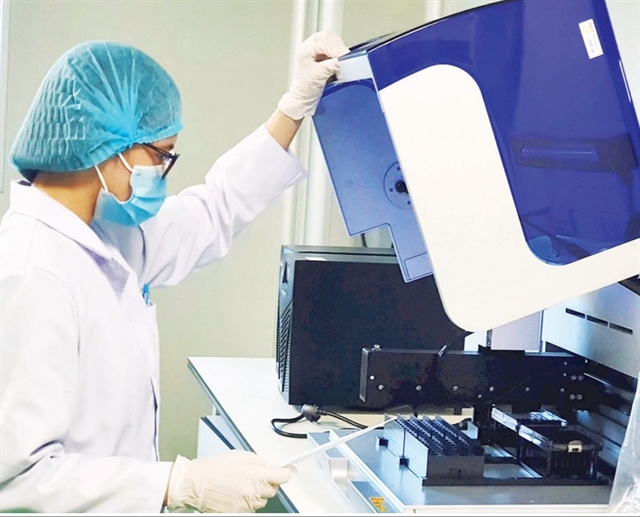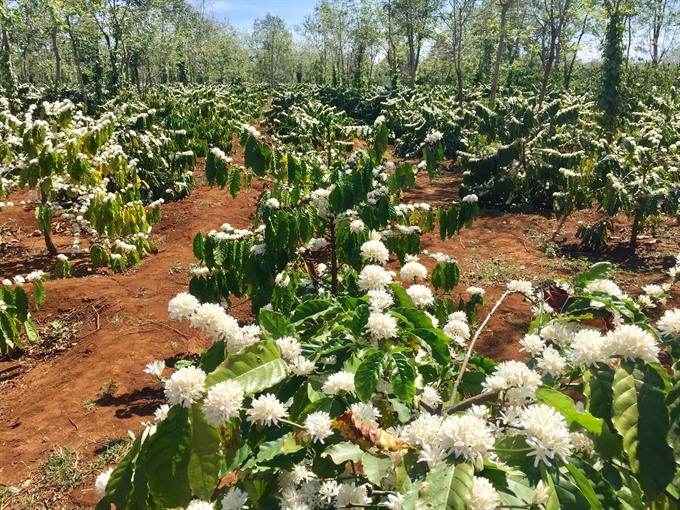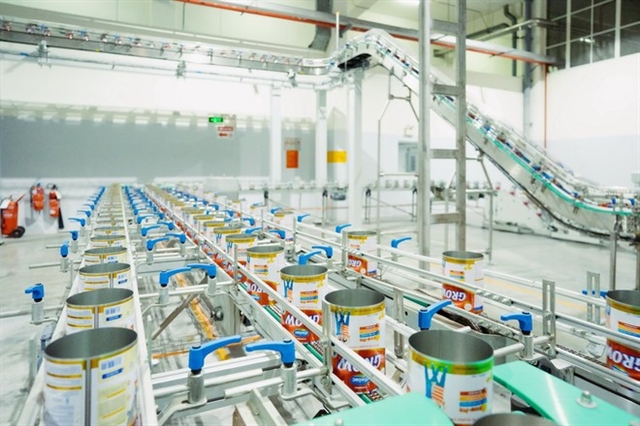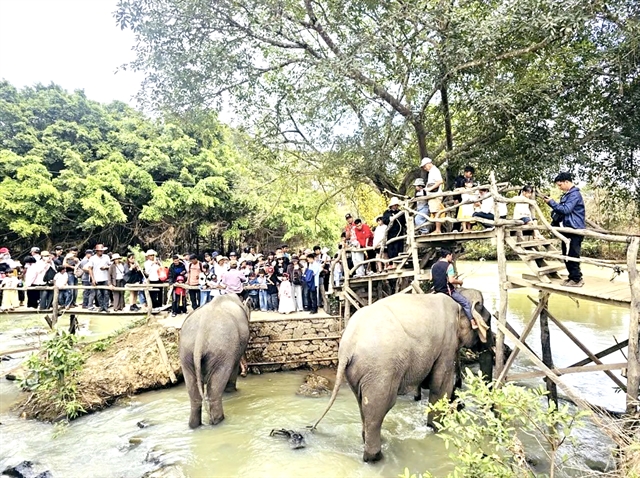 Society
Society

A project to develop the Buôn Ma Thuột coffee brand is expected to benefit more than 15,000 farmers who live in a poor commune in the Central Highlands province of Đắk Lắk.
 |
| Caption: Under a project to develop Buôn Ma Thuột coffee, a new coffee farm is expected to produce high yields in Êa Tu Commune in Buôn Ma Thuột, considered the main coffee producing area of Việt Nam. VNS Photos Bồ Xuân Hiệp |
HCM CITY — A project to develop the Buôn Ma Thuột coffee brand is expected to benefit more than 15,000 farmers who live in a poor commune in the Central Highlands province of Đắk Lắk.
The three-year project, developed by the Đắk Lắk Province’s People’s Committee and the provincial Agriculture Extension Centre, aims to help farmers in Êa Tu Commune to replant thousands of old, unproductive trees.
Under the project, advanced technologies will be used in pilot production models while small farming households will be consolidated into a centralised farming area to improve coffee productivity in six villages and six hamlets in Êa Tu Commune.
According to Huỳnh Quốc Thích, deputy director of the province’s Department of Agriculture and Rural Development, coffee trees have been cultivated in Đắk Lắk Province for the last 100 years.
Most of the trees are more than 20 years old and produce low yields. The average life span for coffee trees is between 20 and 30 years.
Between 140,000 ha and 160,000 ha of trees need to be replaced in the next five to 10 years, a big challenge for the industry.
The industry is also facing other problems, including small-scale production, poor quality control and outdated processing technologies.
Ten years ago, coffee brought a prosperous life to millions of farmers in the province, but in recent years the productivity and quality of coffee beans have declined.
Coffee trees more than 20 years old account for 23.5 per cent of the area, and trees 15-20 years old nearly 35 per cent, according to the Department of Agriculture and Rural Development.
More than 92 per cent of the coffee trees have not adapted well to disease or to climate change.
In addition, intensive farming and improper use of fertilisers and pesticides have seriously affected soil quality in the province. Many farmers often water trees excessively, washing away nutrients needed for the plants.
Under the project, an agreement between Bình Điền Fertilizer Joint-Stock Company and Vinacafé Biên Hòa Joint-Stock Company, a member of the Masan Group Corp, was signed last month as part of the 6th Coffee Festival held in Buôn Ma Thuột City.
The agreement aims to assist local authorities to create a high-quality, productive coffee-growing area in Êa Tu Commune.
The two companies have been cooperating with the Central Highlands’ Agro-Forestry Scientific and Technical Institute to create linkages among farmers, scientists, businesses and the state in an aim to improve the Buôn Ma Thuột coffee brand.
Located in the northeast of Buôn Ma Thuột City in Đắk Lắk, Êa Tu Commune covers an area of 2,862 ha, of which the coffee plantation area accounts for 1,340 ha.
The commune has 3,617 households with 15,023 people, according to the province’s people’s committee.
The commune has 175 poor households. Their major income comes from agricultural production, mostly coffee cultivation.
Over the past 10 years, the country has exported 1.2-1.5 million tonnes of coffee annually.
Việt Nam ranks second in the world for coffee exports, following Brazil. — VNS




